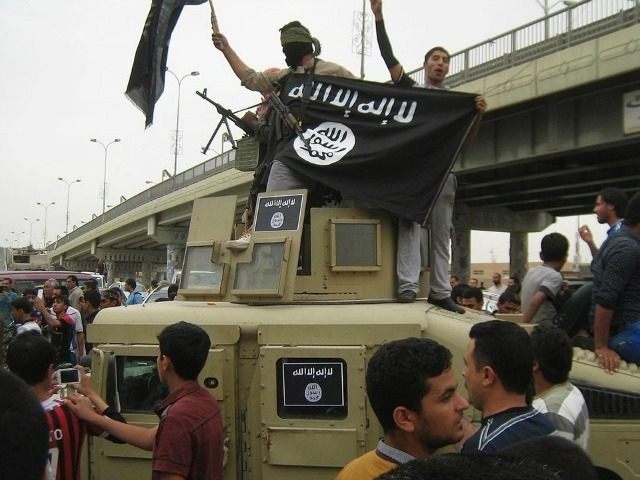Al-Qaeda may pose a bigger longterm threat when compared to its rival, the Islamic State (IS/ISIS/ISIL), concludes a study prepared for the U.S. Special Operations Command Center (SOCOM) at the MacDill Air Force Base in Tampa, Florida.
Daveed Gartenstein-Ross, senior fellow at the Foundation for Defense of Democracies (FDD), along with Jason Fritz, Bridget Moreng, and Nathaniel Barr from Valens Global, co-wrote the study, “The War Between the Islamic State and al-Qaeda: Strategic Dimensions of a Patricidal Conflict.”
Valens Global is Gartenstein-Ross’ consulting firm.
“The competition between the two groups will likely be fierce, and will involve unexpected developments,” the study determines, adding:
Al-Qaeda’s strategy is better positioned for the long term, though IS’s emergence has placed significant pressures on al-Qaeda’s network, and has transformed some of its strengths into weaknesses—for example, by leveraging al-Qaeda’s use of front groups to make its network seem less attractive to affiliates IS is trying to woo.
“If the right circumstances align for IS, it could severely weaken al-Qaeda’s network,” adds the report.
The study acknowledges that ISIS has enjoyed more attention from the media and the military given its savagery.
Al-Qaeda being in a better position to last than ISIS may go against conventional wisdom, concedes Gartenstein-Ross. However, that matters little to him.
“That is our view,” he told Military.com, speaking of the report. ”It is very contrary to the conventional wisdom in the field, but the fact that it is contrary doesn’t bug me. I have been contrary for the past 4.5 years or so and most of the time, my record has born out pretty well.”
The study examines the differences between the two terrorist groups, noting that ISIS had previously been al-Qaeda’s Iraq-based affiliate.
“For one, IS is more technology-savvy than al-Qaeda; it understands social media’s ability to mobilize people to its cause on an unprecedented scale, a dynamic that has helped IS connect with a younger demographic,” notes the report.
The report also states:
IS also expects to experience success in a shorter time frame than al-Qaeda: While al-Qaeda developed a long-term strategy designed to flout operations against it by appealing to and becoming an organic part of local populations, IS thought the time was ripe to capture significant territory, crush its foes, and declare the caliphate’s reestablishment.
“With similar ideologies and a common objective of creating a caliphate that would be ruled by a strict version of sharia (Islamic law), al-Qaeda and IS now find themselves locked in a fierce competition,” it adds.
The study compares al-Qaeda’s strategy to that of Mao Tse-Tung, while it links ISIS’s strategy to the “Focoist writings of Ernesto ‘Che’ Guevara and Regis Debray.”
“Mao’s theory of revolution is rooted in the primacy of politics over warfare,” says the study.
Meanwhile, the report continues:
Focoism holds that the political foundation necessary for revolution can be crafted though violence. Guevara essentially flipped Mao’s theory by arguing that the use of violence against the state could inspire peasants to rise up too—and this general uprising could usher in political purity. Focoism, unlike Mao’s strategy, accepts great risks in order to inspire support.
The study concedes that the Mao-Che comparison is not a perfect analogy, but a good place to start.
“This framework of Maoist versus Focoist models of revolutionary warfare should not be seen as a complete explanation for either al-Qaeda or IS’s behavior,” notes the study. “Neither group is perfectly Maoist or Focoist, but they can be understood as largely adhering to one of these two revolutionary paradigms on the whole.”
There are two possible future outcomes of the competition between ISIS and al-Qaeda, according to the study.
“The most likely future is that IS remains a largely overt and brutal organization while al-Qaeda continues to rebrand itself and shore up its political base of support, exploiting its adversaries’ perception of al-Qaeda as a spent force,” says the study.
The second possible outcome is that “al-Qaeda may feel the pressure to become more overt, both organizationally and military. The result of al-Qaeda becoming more overt in its competition with IS would be a strategic outbidding between the two groups.”
In the study, the authors suggest that it is crucial for the United States to understand the strategic outlook of the two groups.
The U.S. should “pay close attention as the approaches continue to evolve,” concludes the study. “In the current operating environment, the United States has tremendous opportunities to exploit cleavages between IS and al-Qaeda.”
Failing to understand the two groups’ strategies, as well as their strengths and weaknesses, may result in the emergence of a “stronger than before” jihadist movement, the study asserts.

COMMENTS
Please let us know if you're having issues with commenting.